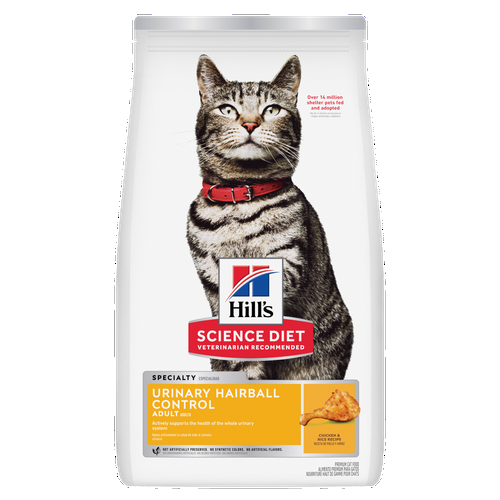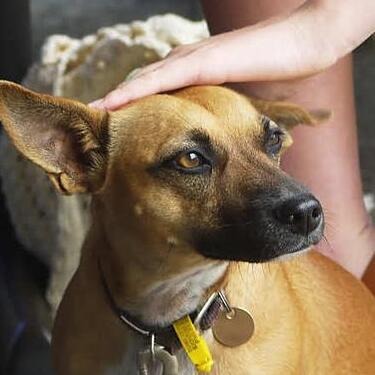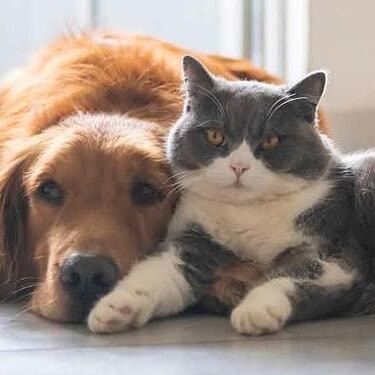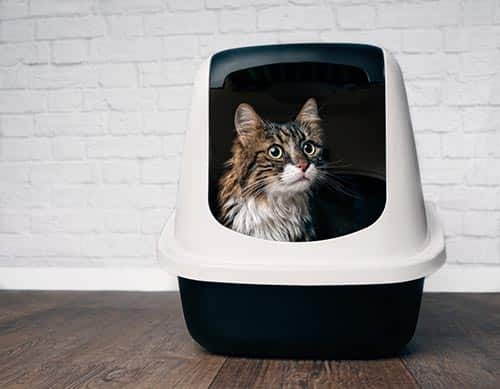
-
Find the right food for your petTake this quiz to see which food may be the best for your furry friend.Find the right food for your petTake this quiz to see which food may be the best for your furry friend.Featured products
 Hill's Science Diet Adult Oral Care Chicken, Brown Rice & Barley Recipe Dog Food
Hill's Science Diet Adult Oral Care Chicken, Brown Rice & Barley Recipe Dog FoodClinically proven kibble technology to reduce plaque & tartar build-up
Shop Now Adult Small & Mini Lamb Meal & Brown Rice Recipe Dog Food
Adult Small & Mini Lamb Meal & Brown Rice Recipe Dog FoodFor the faster metabolism of Small & Mini dogs
Shop Now Adult 7+ Small & Mini Chicken & Brown Rice Recipe Dog Food
Adult 7+ Small & Mini Chicken & Brown Rice Recipe Dog FoodFor the unique nutritional needs of mature Small & Mini dogs
Shop NowFeatured products Adult Indoor Chicken Recipe Cat Food
Adult Indoor Chicken Recipe Cat FoodSupports energy level and beautiful fur in indoor cats
Shop Now Hill's Science Diet Adult Sensitive Stomach & Skin Dog Food
Hill's Science Diet Adult Sensitive Stomach & Skin Dog FoodHighly digestible recipe, gentle on stomachs. Nourishes skin & promotes a lustrous coat
Shop Now Adult Urinary Hairball Control Chicken & Rice Recipe Cat Food
Adult Urinary Hairball Control Chicken & Rice Recipe Cat FoodActively supports the health of the whole urinary system
Shop Now -
Featured articles
 15 Pet-Friendly Cities Ideal for a US Road Trip
15 Pet-Friendly Cities Ideal for a US Road TripCheck out our list of pet-friendly U.S. cities that are excellent travel options, offering off-leash dog parks and pet-friendly restaurants & hotels.
Read More Easy DIY Dog & Cat Toys: Nine of Our Favorites
Easy DIY Dog & Cat Toys: Nine of Our FavoritesBrowse this comprehensive guide for several of our favorite DIY dog and cat toys that are sure to put a little pep in your pet's step.
Read More My Pet Ate a Lizard — What Should I Do?
My Pet Ate a Lizard — What Should I Do?Learn what to do if your pet eats a lizard, including whether they can be toxic and symptoms to keep an eye on when they've swallowed one.
Read More -


Has your cat been diagnosed with colitis? Does your cat occasionally vomit or have diarrhea? Have you been to the veterinarian more than once for these problems? Colitis in cats is a common problem, and if your cat struggles with chronic diarrhea and/or vomiting, then inflammatory bowel disease, or IBD in cats, could be the culprit.
IBD is described as a chronic inflammatory condition of the gut, and it's one of the causes of colitis in cats. IBD can affect different parts of the gastrointestinal tract, and the location determines what the disease is called. If it affects the stomach it, is called gastritis; if it affects the small intestines, it is called enteritis; and if it affects the colon, it is called colitis. In IBD, inflammatory cells infiltrate the walls of the intestines and interfere with normal digestion. The cause of IBD in cats is still unknown, but it is postulated that IBD in cats is the result of a complex interaction among diet, the immune system and the microbiome — which is the bacterial population in the gut.
How Is IBD in Cats Different From IBS?

IBD is considered an autoimmune condition and differs from stress colitis in cats, which is sometimes called irritable bowel syndrome (IBS). IBD results from inflammation in the gut and can arise from a number of conditions that may be associated with autoimmune problems. In contrast, IBS results from stress and often causes a spastic colon that produces diarrhea. IBS is controlled by stress management, while IBD is managed by nutritional therapy and medication.
What are the Symptoms of IBD in Cats?
Signs of IBD in companion animals include diarrhea, weight loss, vomiting, lethargy and/or changes in appetite. IBD in cats often manifests as increased appetite and large amounts of diarrhea. However, a cat might also experience a decreased appetite in which weight loss is common.
How Is IBD in Cats Diagnosed?
IBD is first determined through exclusion, which means that other causes of vomiting and diarrhea are first ruled out. Your vet will likely ask for your permission to run laboratory tests, including blood work, urine analysis, fecal analysis, and a gastrointestinal panel. These tests are intended to rule out many diseases that can have the same symptoms as those of IBD, such as chronic pancreatitis, intestinal parasites, food responsive enteropathies, intestinal dysbiosis, etc.
If all these tests come back negative, then it's time to examine the intestines themselves. Your vet may recommend an abdominal ultrasound and/or a biopsy of the small intestine. A biopsy is the only way to definitively diagnose IBD; follow your vet's recommendations for additional testing.


Tasty Tips
Treatment for IBD in Cats
Treatment for IBD consists of a combination of medication and nutritional therapy. The importance of nutritional therapy in cats with IBD cannot be stressed enough. According to veterinary internal medicine specialist Craig Ruaux, BVSc (Hons), PhD, MACVSc, DACVIM-SA, 60% of cats with chronic GI disease improve with nutritional therapy alone and don't require steroids. Cats with IBD can truly benefit from a therapeutic meal plan prescribed by your vet; over-the-counter food is not appropriate for cats with IBD.
A low-fat novel protein, hydrolyzed protein or special dietary fiber meal may be recommended. You can purchase this food online with vet approval or directly from your vet. Be sure to ask if one of Hill's® Prescription Diet® cat foods might be an option for your cat. If a therapeutic meal plan is recommended for your cat, your cat shouldn't eat anything else — especially during a meal plan trial — so that your vet can assess the success or failure of the meal plan for managing IBD symptoms.
If your cat is diagnosed deficient in cobalamin (vitamin B12) and/or folate (another B vitamin), which many cats with IBD are, then these vitamin supplements are prescribed. IBD is often accompanied by unhealthy alterations in the gut microbiome, contributing to poor gut health. The guts of cats with IBD often contain too many of the bad bacteria (those that cause disease) and not enough of the more beneficial, symbiotic bacteria that aid in digestion. In these cases, a probiotic and/or a specialized prebiotic fiber-containing food is likely to be recommended. In severe cases or cases that don't respond to nutritional therapy alone, steroids or other immunosuppressive drugs may be prescribed.
It's important to note that many chronic feline GI diseases, including IBD, cannot be cured, but they can be managed. Additionally, diagnosing IBD in cats and treating the condition can involve trial and error, especially in cats that have more than one gut challenge. It takes time and testing to find the root cause, and it is important to communicate regularly with your veterinary care team, especially if treatment isn't working. By working with your veterinary care team, you can minimize the effect of the disease on your and your cat's quality of life.


Dr. Sarah Wooten graduated from UC Davis School of Veterinary Medicine in 2002. A member of the American Society of Veterinary Journalists, Dr. Wooten divides her professional time between small animal practice in Greeley, Colorado, public speaking on associate issues, leadership, and client communication, and writing. She enjoys camping with her family, skiing, SCUBA, and participating in triathlons.
Related products
Related articles

Put your cat on a diet without them knowing
Our low calorie formula helps you control your cat's weight. It's packed with high-quality protein for building lean muscles, and made with purposeful ingredients for a flavorful, nutritious meal. Clinically proven antioxidants, Vitamin C+E, help promote a healthy immune system.
Put your cat on a diet without them knowing
Our low calorie formula helps you control your cat's weight. It's packed with high-quality protein for building lean muscles, and made with purposeful ingredients for a flavorful, nutritious meal. Clinically proven antioxidants, Vitamin C+E, help promote a healthy immune system.

